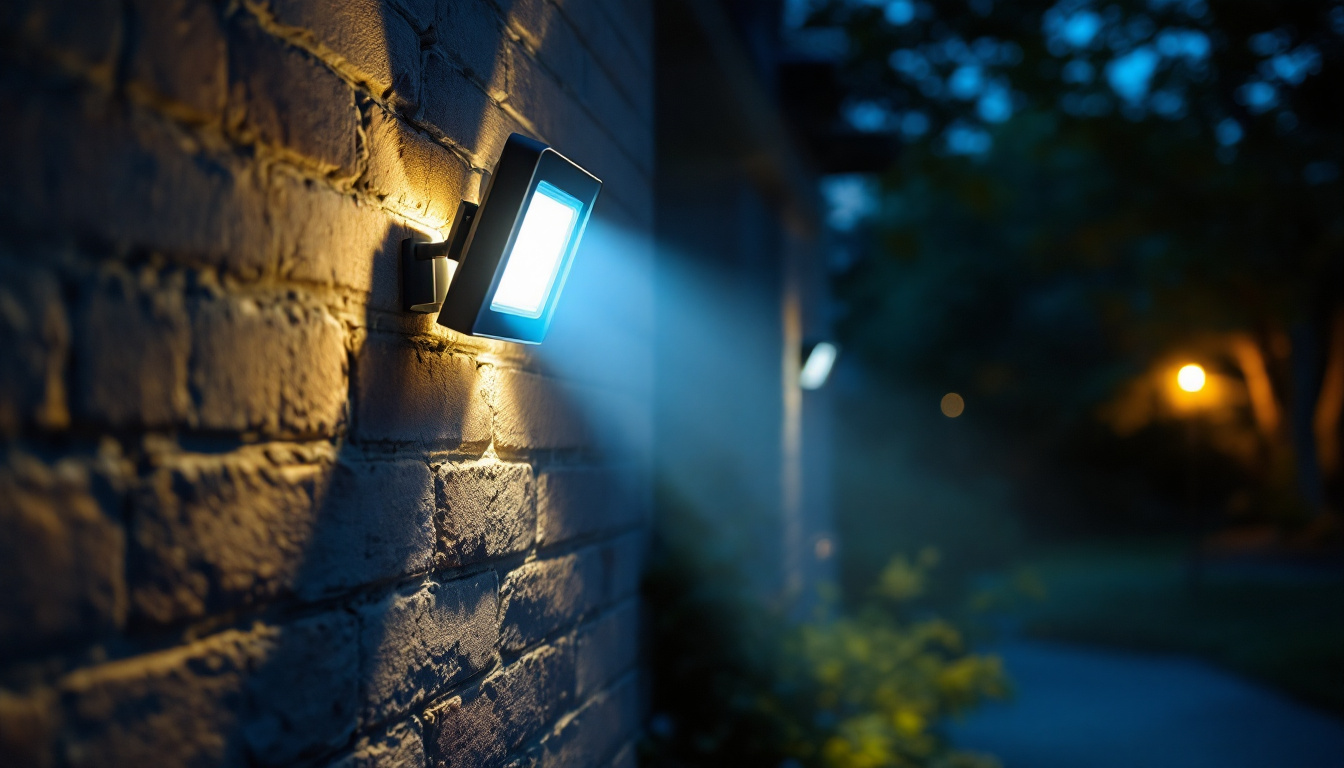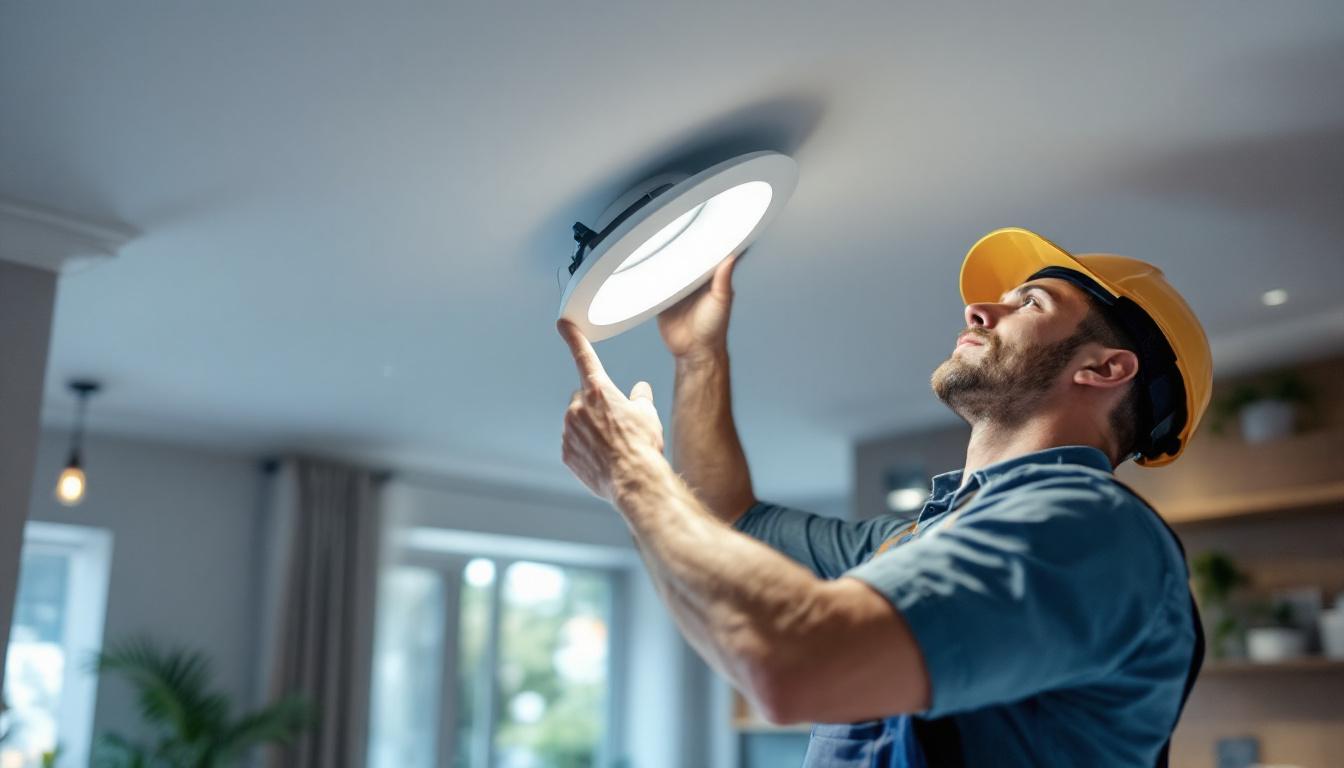
The invention of the light bulb is often heralded as one of the most transformative innovations in human history. For lighting contractors, understanding the significance of the light bulb goes beyond mere historical interest; it is crucial for grasping the evolution of lighting technology and its implications for modern practices. This article delves into the importance of the light bulb invention and what contemporary lighting contractors need to know to stay competitive in the industry.
The journey of lighting technology began long before the light bulb came into existence. From the use of fire and oil lamps to the advent of gas lighting, each phase marked a significant advancement in how humans illuminated their environments. However, the introduction of the electric light bulb marked a pivotal moment, fundamentally changing both residential and commercial lighting.
Before the light bulb, gas lighting was the primary source of illumination in urban areas. While it provided brighter and more reliable light than its predecessors, gas lighting came with its own set of challenges, including safety hazards and high operational costs. The electric light bulb offered a cleaner, safer, and more efficient alternative, paving the way for widespread electrification. This transition not only transformed the physical landscape of cities, with the installation of electrical grids and infrastructure, but also sparked a wave of innovation in various industries, as manufacturers began to explore the possibilities of electric lighting in their products and services.
The introduction of electric light bulbs revolutionized daily life. Homes, businesses, and public spaces could be illuminated more effectively, extending productive hours beyond daylight. This shift not only enhanced safety but also fostered social and economic activities, leading to a more vibrant community life. The ability to light up streets and public areas reduced crime rates and allowed for nighttime gatherings, thus reshaping social interactions. Additionally, the newfound accessibility of electric lighting encouraged the development of new forms of entertainment, such as theaters and nightclubs, which thrived in the illuminated urban landscape. Moreover, the impact of electric lighting extended into the realms of education and work, as students could study later into the evening and businesses could operate longer hours, ultimately contributing to the growth of the economy.
Since the invention of the light bulb, the lighting industry has undergone significant technological advancements. These innovations have not only improved the quality of light but have also made lighting systems more energy-efficient and environmentally friendly. The transition from traditional lighting methods to modern solutions reflects a broader trend towards sustainability and energy conservation, which is becoming increasingly important in today’s world.
Today, lighting contractors must be familiar with various types of light bulbs, including incandescent, fluorescent, LED, and halogen. Each type has its own set of advantages and disadvantages, making it essential for contractors to understand their applications. For instance, LED bulbs are highly energy-efficient and have a longer lifespan compared to incandescent bulbs, making them a popular choice for both residential and commercial settings. Additionally, fluorescent bulbs, while less common in new installations, are still used in many industrial applications due to their bright output and cost-effectiveness. Understanding the nuances of each bulb type allows contractors to provide tailored solutions that optimize both performance and cost for their clients.
With the rise of smart technology, lighting has become more integrated with home automation systems. Smart bulbs can be controlled remotely, allowing for customizable lighting scenarios that enhance user experience. Lighting contractors should be well-versed in these technologies to offer clients modern solutions that meet their needs. Furthermore, smart lighting systems often include features such as scheduling, dimming, and color-changing capabilities, which can significantly enhance the ambiance of a space. The integration of sensors and automation can also lead to increased energy savings, as lights can be programmed to turn off when a room is unoccupied or adjust based on the time of day. As the demand for smart home technology continues to grow, staying updated on these advancements will be crucial for contractors looking to remain competitive in the market.
The economic implications of the light bulb invention extend far beyond its initial cost. The lighting industry has grown into a multi-billion dollar sector, driving job creation and innovation. For lighting contractors, understanding the economic landscape is crucial for making informed business decisions. The evolution of lighting technology has also spurred the growth of ancillary industries, including manufacturing, distribution, and installation services, creating a ripple effect that benefits the broader economy. As cities and municipalities invest in modern lighting infrastructure, the economic benefits can be seen in increased safety, enhanced public spaces, and improved quality of life for residents.
energy-efficient lighting solutions, such as LEDs, not only reduce electricity bills for consumers but also contribute to a lower carbon footprint. Lighting contractors can leverage this knowledge to promote energy-saving solutions to clients, helping them save money while also supporting sustainability initiatives. Moreover, the long lifespan of LED bulbs means fewer replacements, which translates to reduced waste and lower maintenance costs. This shift towards energy efficiency is not just a trend; it is becoming a standard expectation among consumers and businesses alike, further emphasizing the importance of adopting these technologies.
As consumer preferences shift towards energy-efficient and aesthetically pleasing lighting solutions, contractors must stay updated on market trends. Understanding what clients are looking for—be it smart lighting, unique designs, or energy efficiency—can help contractors tailor their services and stay ahead of the competition. Additionally, the rise of smart home technology has led to an increased demand for integrated lighting systems that can be controlled remotely or programmed for specific settings. This trend not only enhances convenience for users but also opens up new avenues for contractors to offer value-added services, such as installation and maintenance of smart lighting systems. By staying attuned to these evolving preferences, contractors can position themselves as industry leaders, ready to meet the demands of a changing market.
With advancements in lighting technology, safety standards and regulations have also evolved. Lighting contractors must be aware of these guidelines to ensure compliance and protect both their clients and their businesses.
Familiarity with local and national electrical codes is essential for lighting contractors. These codes dictate how lighting systems should be installed and maintained to ensure safety and functionality. Non-compliance can lead to serious consequences, including fines and liability issues. Additionally, staying updated on changes to these codes is crucial, as they can frequently evolve to incorporate new technologies or address emerging safety concerns. For instance, the National Electrical Code (NEC) is revised every three years, and contractors should take the initiative to attend workshops or training sessions that discuss these updates to remain informed.
Using high-quality lighting products is not just about performance; it also relates to safety. Contractors should prioritize sourcing products that meet established safety standards. This ensures that installations are reliable and minimizes the risk of electrical failures or hazards. Furthermore, investing in quality products can enhance the longevity of the lighting systems, reducing the need for frequent replacements and repairs. Many reputable manufacturers provide certifications such as UL (Underwriters Laboratories) or ETL (Intertek) listings, which signify that their products have been rigorously tested for safety and performance. By choosing products with these certifications, contractors not only ensure compliance but also build trust with their clients, who can feel confident in the safety and durability of their lighting installations.
The lighting industry continues to evolve, driven by technological advancements and changing consumer demands. Staying informed about future trends is crucial for lighting contractors who want to remain competitive.
As the world moves towards renewable energy sources, the integration of solar-powered lighting solutions is becoming more prevalent. Contractors should consider how they can incorporate these technologies into their offerings, providing clients with sustainable options that align with global energy goals. Furthermore, advancements in energy storage technologies, such as improved battery systems, are enabling solar lighting to be more reliable and efficient. This means that even in areas with less sunlight, clients can still benefit from consistent lighting solutions that reduce their carbon footprint and energy costs.
Human-centric lighting focuses on the well-being of individuals by mimicking natural light patterns. This approach can improve mood, productivity, and overall health. Lighting contractors should explore how they can implement human-centric designs in their projects, catering to clients who prioritize wellness in their environments. Additionally, research indicates that the color temperature and intensity of light can significantly affect circadian rhythms, which regulate sleep and wake cycles. By utilizing tunable white lighting that adjusts throughout the day, contractors can create spaces that not only enhance aesthetic appeal but also promote better sleep quality and daytime alertness, ultimately leading to healthier living and working environments.
The invention of the light bulb has left an indelible mark on society, influencing everything from daily life to economic structures. For lighting contractors, understanding this legacy is crucial for navigating the complexities of modern lighting solutions. By staying informed about technological advancements, safety standards, and market trends, contractors can provide valuable services that meet the evolving needs of their clients.
As the lighting industry continues to advance, embracing innovation while honoring the foundational principles established by the light bulb can lead to a successful and sustainable future for lighting contractors. The journey of lighting is far from over; it is merely entering a new phase, and those who adapt will thrive.
As you embrace the transformative legacy of the light bulb and adapt to the ever-evolving lighting industry, let LumenWholesale be your trusted partner. We provide lighting contractors with the highest quality, spec-grade lighting products at unparalleled wholesale prices. With our commitment to cutting out the middleman, you gain access to superior lighting solutions without the burden of inflated markups. Our extensive selection not only meets but exceeds industry standards, ensuring your projects shine with reliability and high performance. Plus, with the convenience of free shipping on bulk orders, you can stock up on premium lighting at the best value—no hidden fees, no compromises. Elevate your lighting game and experience the ideal fusion of quality, affordability, and convenience. Visit LumenWholesale today and secure Wholesale Lighting at the Best Value for your next project.

Discover how choosing the right fluorescent lamp sizes can enhance efficiency and maximize profitability in lighting installations.

Discover the essential best practices lighting contractors use when installing motion-sensitive flood lights.

Discover the essential guide to 8-inch recessed lighting retrofits tailored for lighting contractors.

Discover the transformative impact of semi flush mount kitchen lighting in your home.